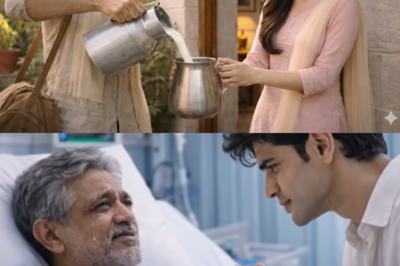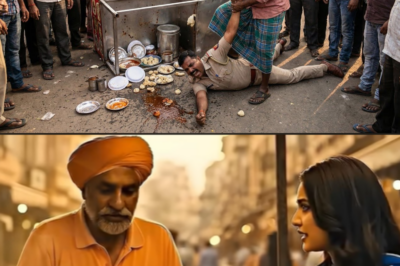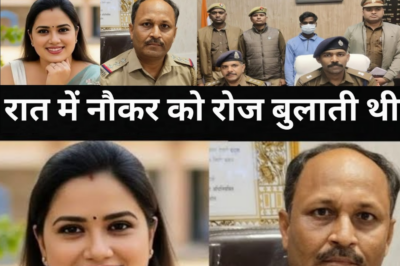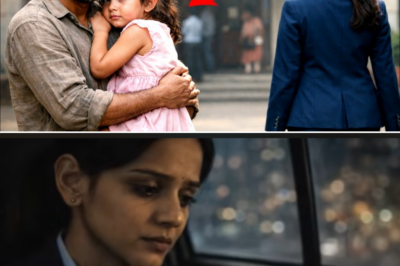Controversy Erupts Over ‘The Kerala Story’ at 71st National Film Awards: Art, Agenda, or Social Reflection?
National Award for ‘The Kerala Story’ Sparks Political Storm: Has Indian Cinema Crossed a Line or Upheld Its Role as Social Mirror?

Introduction
Indian cinema has long been hailed as a mirror to society—reflecting its hopes, struggles, injustices, and victories. Across generations, films have influenced and shaped public consciousness to a degree unmatched by any other medium. From rallying resistance during the British Raj, exposing the cracks in post-independence society, to challenging gender norms, movies have spurred change and provoked debate.
That tradition continued, albeit in a controversial way, at the 71st National Film Awards. Alongside celebrated wins for Shah Rukh Khan (Jawan), Rani Mukerji (Mrs. Chatterjee vs Norway), and Vikrant Massey (12th Fail), it was the recognition of Sudipto Sen’s The Kerala Story that triggered the biggest political and social uproar.
‘The Kerala Story’: A Film at the Epicenter of Debate
Directed by Sudipto Sen, The Kerala Story was awarded Best Director and Best Cinematography at the prestigious awards. The movie, released in 2023, presents a provocative narrative: it claims that thousands of young Hindu women from Kerala were forcibly converted and trafficked to conflict zones like Syria, where many faced untold horrors, including sexual violence and death. The film’s makers cite an alleged figure of 32,000 victims—a statistic fiercely contested and widely criticized.
The Chief Minister’s Dissent
Kerala’s Chief Minister Pinarayi Vijayan did not remain silent. Reacting strongly to the film’s national recognition, he stated publicly that bestowing such an honor on The Kerala Story was an “insult” to both Kerala and to the foundational traditions of Indian cinema. He accused the film of spreading falsehoods to defame his state and promote a divisive narrative, saying: “This film was deliberately made to malign Kerala and spread communal hatred. There is no truth in what the film portrays, and awarding it disregards the glorious tradition of Indian cinema which has always stood for religious harmony and unity.”
Vijayan went further, claiming that the award reflected the ideological agenda of certain groups, and called on film lovers and citizens to oppose such moves.
The Broader Backdrop: Cinema, Politics, and Social Narratives
The Kerala Story is not the first film to spark such controversy. Just a year before, The Kashmir Files, a film focusing on the exodus of Kashmiri Pandits, was accused by several leaders of pushing a political agenda and distorting facts. Yet, as the conversation unfolded on social media and in mainstream analysis, many pointed to actual events and historical records that supported portions of those narratives, even if the films dramatized them for effect.
This places Indian cinema—and indeed, global cinema—in a complex position. Is the role of film to inform and challenge, or should it be to entertain and unite? When artists choose to adapt sensitive, real-life events, are they acting as agents of awareness, or as arbiters of division?

Role of Cinema as Society’s Conscience
The impact of movies on the public psyche is immense. From Bimal Roy’s Do Bigha Zamin exposing rural poverty, to Gulzar’s and Shyam Benegal’s work on women’s rights, to more recent films on corruption, crime, and the underworld, movies have consistently confronted controversial issues. They often popularize themes that are ignored by politicians or media—but this also makes them targets for those who feel threatened by their influence.
Supporters of The Kerala Story argue that uncomfortable films sometimes hold up a mirror to society’s darker chapters, sparking debate and, potentially, change. Critics believe such movies risk feeding misinformation, inciting unrest, or reinforcing stereotypes. In a country as diverse and sensitive as India, the fine line between truth, agenda, and artistic license is not always easily drawn.
Political Implications and Future Ramifications
National awards have historically served as validation—not just of cinematic excellence, but also of narratives deemed important for the nation’s collective memory. The decision to honor The Kerala Story is seen by some as a bold recognition of “unspoken truths,” while others see it as a dangerous precedent that could encourage the glamorization or politicization of sensitive issues for mass consumption.
Chief Minister Vijayan’s remarks echo a broader fear: that such awards can be appropriated by vested interests to legitimize narratives, regardless of the film’s factual grounding. For artists and filmmakers, this creates ethical dilemmas—should storytelling be constrained, or should censorship give way to open dialogue, even when emotions run high?
A Divided Audience
Public reaction to The Kerala Story’s win is visibly divided. Some hail the film’s awards as overdue recognition for fearless filmmaking. Others feel it represents a betrayal of Indian cinema’s core values of inclusivity, harmony, and social responsibility.
On social media and public forums, debate rages on. Many recall how the full horror of incidents like the Kashmiri exodus or other traumatic national events only became broadly understood after films, books, and investigative journalism brought evidence to the mainstream. Supporters argue that even controversial films spark necessary discussions that should not be silenced.
Conclusion: Cinema’s Double-Edged Sword
As the dust settles on the 71st National Film Awards, one thing is certain: Indian cinema remains immensely powerful—not just as entertainment, but as a catalyst for debate, discomfort, and, sometimes, division.
By honoring The Kerala Story, the jury has reignited an old question with new urgency: Does art merely reflect society, or does it actively shape it? Where is the line between courageous storytelling and the propagation of potentially harmful narratives? And, in a democracy, who gets to decide?
As India’s filmmakers and audiences grapple with these questions, the nation—in all its diversity and intensity—continues to look to cinema not just for reflection, but for conversation and, perhaps, transformation.
What’s your view on this year’s most controversial National Award?
News
करोड़पति लड़का दूधवाला बनकर पहुंचा अपनी होने वाली पत्नी के घर…सच्चाई जानकर इंसानियत रो पड़ी
करोड़पति लड़का दूधवाला बनकर पहुंचा अपनी होने वाली पत्नी के घर…सच्चाई जानकर इंसानियत रो पड़ी अमीरी का मुखौटा और रिश्तों…
जब एक आर्मी अफसर के साथ बदसلوकी हुई | आर्मी की एंट्री ने सब कुछ बदल दिया | New Hindi Moral Story
जब एक आर्मी अफसर के साथ बदसلوकी हुई | आर्मी की एंट्री ने सब कुछ बदल दिया | वर्दी का…
मोमोज वाले बूढ़ा आदमी ने इंस्पेक्टर को क्यों मारा…
मोमोज वाले बूढ़ा आदमी ने इंस्पेक्टर को क्यों मारा… वर्दी का सम्मान और न्याय की जीत: आईपीएस नंदिता की कहानी…
नौकर ने पुलिस दरोगा की पत्नी के साथ किया करनामा/अंजाम ठीक नहीं हुआ/
नौकर ने पुलिस दरोगा की पत्नी के साथ किया करनामा/अंजाम ठीक नहीं हुआ/ धुंधला चरित्र और टूटी मर्यादा: एक दुखद…
DM की माँ के साथ बदसलूकी | एक फ़ैसला जिसने सबको चुप करा दिया | New Hindi moral story 2026
DM की माँ के साथ बदसलूकी | एक फ़ैसला जिसने सबको चुप करा दिया इंसानियत की तराजू: जब सादगी ने…
पत्नी ने अफ़सर बनने से पहले पति को तलाक दे दियाजॉइनिंग के बाद फिर जो हुआ… कोई सोच भी नहीं सकता |
पत्नी ने अफ़सर बनने से पहले पति को तलाक दे दियाजॉइनिंग के बाद फिर जो हुआ… कोई सोच भी नहीं…
End of content
No more pages to load







